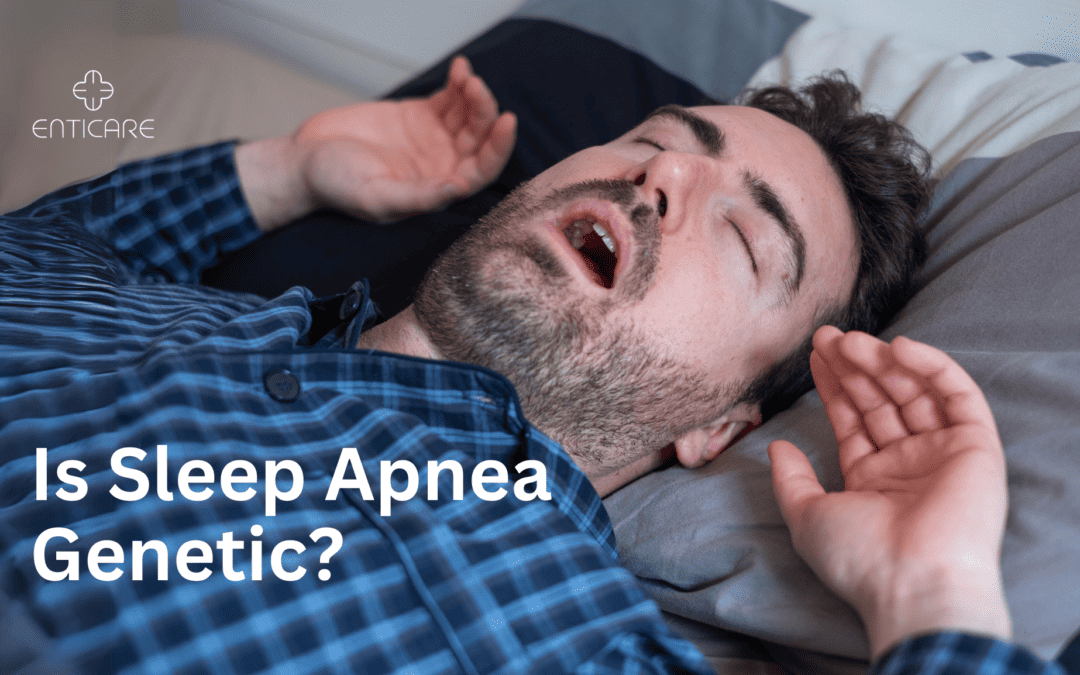Do you find yourself waking up feeling tired despite a full night’s sleep? Do you often struggle with daytime fatigue and irritability? If so, you might be one of the millions affected by sleep apnea, a common but often undiagnosed sleep disorder. In this blog post, we’ll delve into the intriguing question: Is sleep apnea genetic?
The Silent Nighttime Intruder
Before we explore the genetic connection to sleep apnea, let’s first understand what this disorder is. Sleep apnea is a condition characterized by interruptions in breathing during sleep. These interruptions, known as apneas, can last for seconds to minutes and may occur multiple times throughout the night. The two primary types of sleep apnea are obstructive sleep apnea (OSA) and central sleep apnea (CSA), with OSA being the more prevalent form.
As we investigate the genetic aspect of sleep apnea, it’s crucial to recognize the potential impact this disorder can have on overall health. Untreated sleep apnea has been linked to various health issues, including cardiovascular problems, diabetes, and an increased risk of accidents due to daytime sleepiness.
The Inherited Sleep Code
So, is sleep apnea passed down through our genes? Research suggests that genetics may indeed play a significant role in the development of sleep apnea. Family studies have revealed a higher prevalence of sleep apnea among relatives of affected individuals.
Several genetic factors contribute to the risk of developing sleep apnea. One key factor is the shape and structure of the airway. Individuals with a family history of narrow airways or other anatomical features that predispose them to airway collapse during sleep may be more susceptible to sleep apnea.
Additionally, genetic factors influencing muscle tone and control of breathing can contribute to the likelihood of developing sleep apnea. If your family has a history of respiratory control issues or weak throat muscles, it could increase your risk of experiencing sleep apnea.
What Can You Do?
Understanding the potential genetic component of sleep apnea is the first step towards proactive management. If you’re asking yourself, “Is sleep apnea genetic in my family?” it’s crucial to be vigilant about your sleep quality and seek professional evaluation if needed.
Here are some practical steps you can take:
- Know Your Family History: Initiate open conversations with your family about their sleep experiences. Awareness of any familial patterns can prompt early detection and intervention.
- Lifestyle Modifications: Adopting a healthy lifestyle can mitigate the impact of genetic predispositions. Maintain a healthy weight, exercise regularly, and avoid smoking and excessive alcohol consumption.
- Sleep Hygiene: Establishing good sleep habits is essential for everyone, especially those concerned about the genetic aspect of sleep apnea. Maintain a consistent sleep schedule, create a comfortable sleep environment, and practice relaxation techniques before bedtime.
- Professional Evaluation: If you suspect sleep apnea runs in your family, consult with Enticare, we can help you determine your risk for sleep apnea. A sleep study, conducted in a sleep center or through at-home monitoring, can provide valuable insights into your sleep patterns and help diagnose any potential sleep disorders.
Unraveling the Genetic Threads of Sleep Apnea
In the quest to answer the question, “Is sleep apnea genetic?” unraveling its genetic threads is a fascinating journey. While genetics can contribute to the risk, it’s essential to remember that lifestyle factors also play a crucial role. By combining awareness, healthy habits, and timely interventions, individuals can take charge of their sleep health and minimize the impact of genetic predispositions.
As you ponder the genetic puzzle of sleep apnea, remember that knowledge is the key to a restful and rejuvenating night’s sleep. So, armed with information, listen to your body, and embark on the path to a healthier, more restful sleep. Let us help you find the best course of treatment. Call us at 480-214-9000.

